67th Meeting of the International Whaling Commission (IWC67)
10-14 September 2018 | Florianópolis, Brazil
Summary Highlights of the Meeting
Highlights for Friday, 14 September 2018
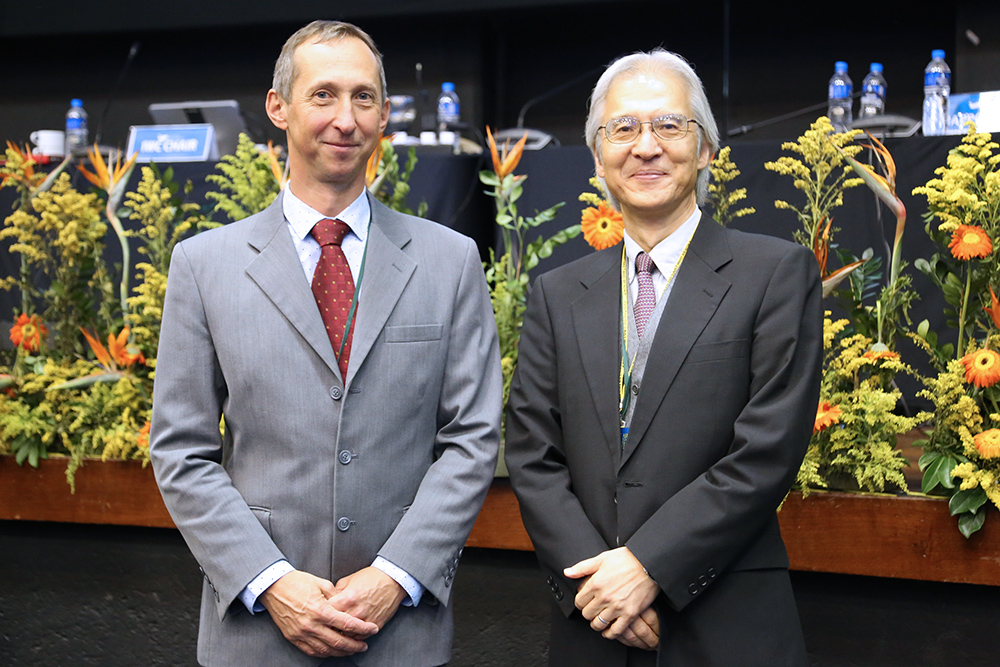
On Friday, the final day of IWC-67, delegates wrapped up all remaining agenda items under Chair Morishita’s leadership.
Delegates voted on Japan’s revised ‘Way Forward’ proposal. To address the fact that the proposal included both a Schedule amendment and resolution, which have different voting thresholds (simple majority for resolutions), Japan proposed revised text establishing that the resolution would only go forward on the condition that the Schedule amendment was adopted by the Commission (requiring a three-fourths majority). The final vote was 27 in favor, 41 opposed, and two abstentions.
Statements made after the vote included comments on: support for the conservation and sustainable use of natural resources, including marine mammals; and the need for the IWC to spend more time striving for consensus and understanding divergent visions. Masaaki Taniai, Japan’s Vice-Minister for Agriculture, Forestry and Fisheries, expressed disappointment over the outcome and said Japan will undertake a fundamental reassessment of its position in the IWC, scrutinizing every option.
Delegates adopted, without further revision, the reports of the Scientific, Conservation, and Finance and Administration Committees; the Infractions, Budgetary, Aboriginal Subsistence Whaling Sub-Committees; and the Whale Killing Methods and Welfare Issues Working Group. The report of the Standing Working Group on Special Permit Programmes was adopted after agreeing to include in the Chair’s summary report a statement reflecting Japan’s opposition to the report and a list of other countries supporting Japan’s position.
Delegates elected Robert Suydam (US) as the Scientific Committee Chair (SC) and Alexandre Zerbini (Brazil) as the SC Vice-Chair, with many congratulations extended for outgoing SC Chair Caterina Fortuna.
Australia was elected as the new Budgetary Sub-Committee Chair and Switzerland as Vice-Chair.
Adding a bit of levity toward the close of the meeting, Haydée Rodriguez Romero, Costa Rica, was the top vote-getter in a contest for the best whale-themed jewelry.
The meeting elected a new Bureau, with Andrej Bibič (Slovenia) as IWC Chair and Amadou Diallo (Guinea) as Vice-Chair, and accepted Slovenia’s offer to host IWC-68 in Portorož, Slovenia in 2020.
Plenary
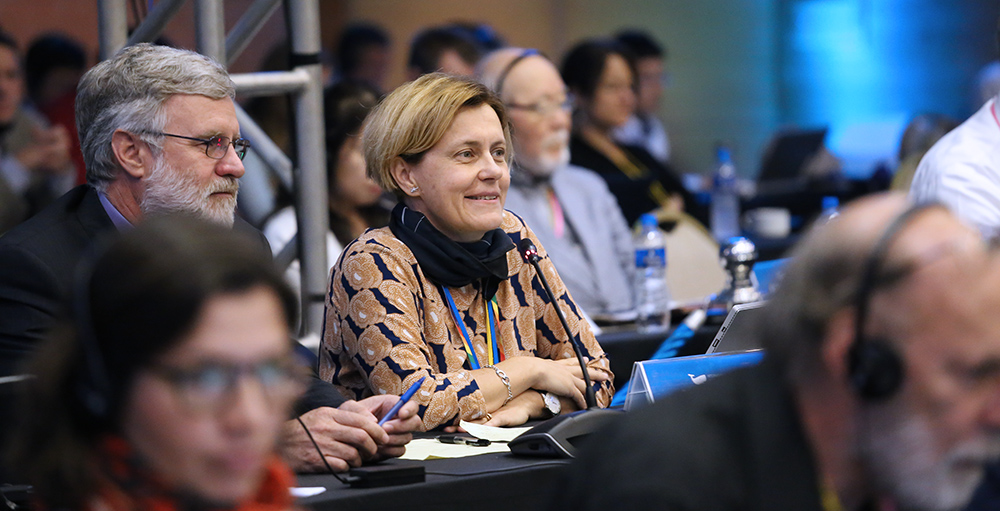
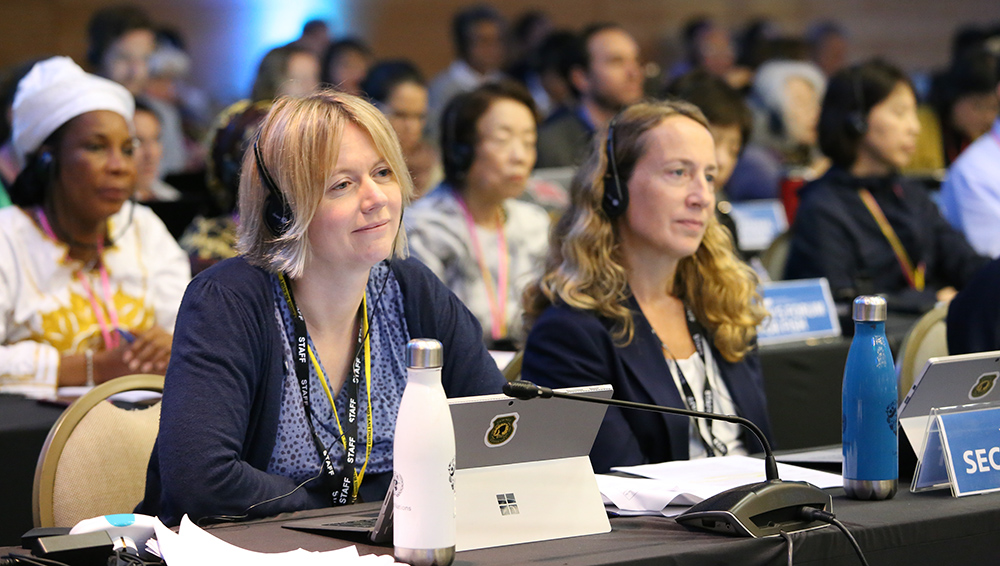
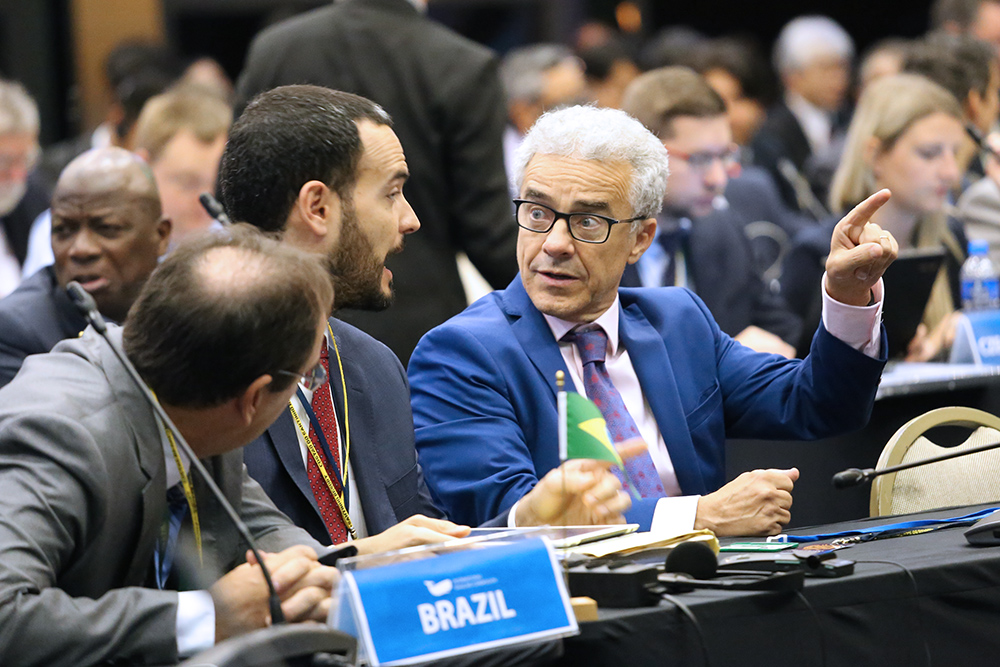
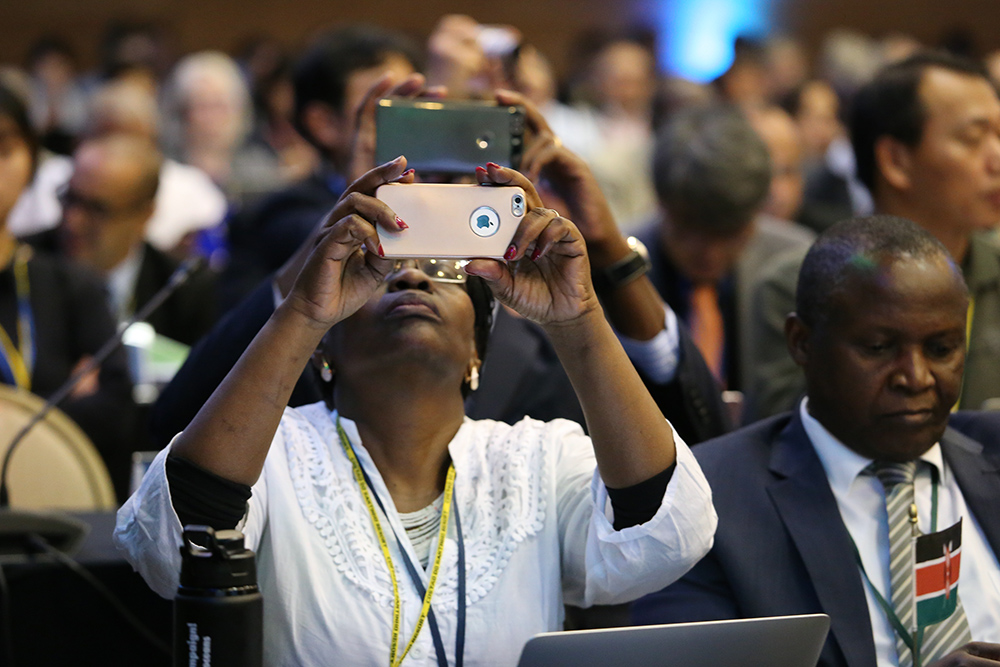
Contest
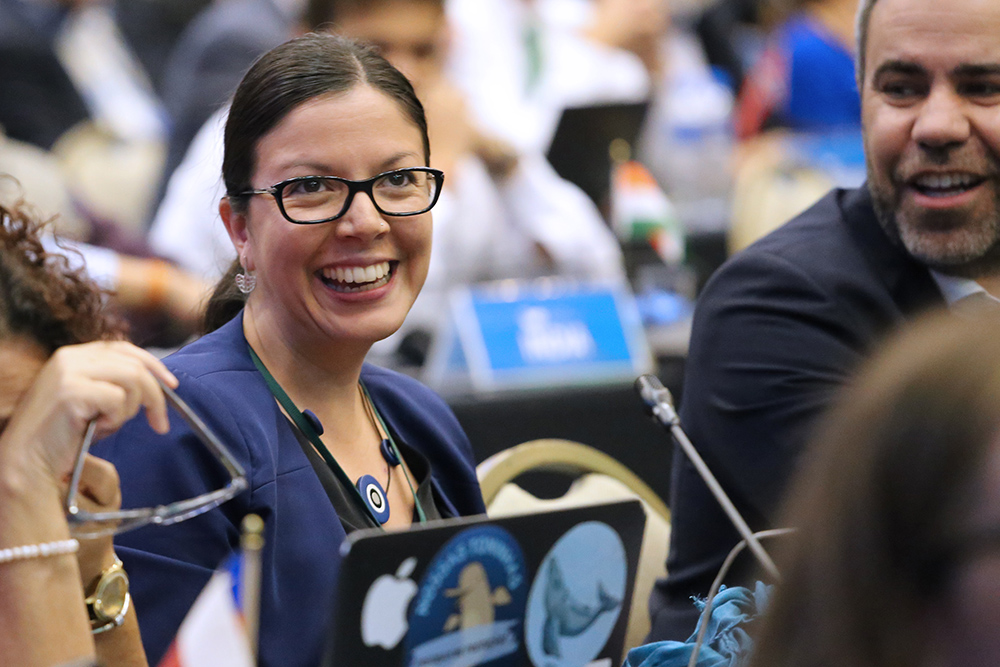
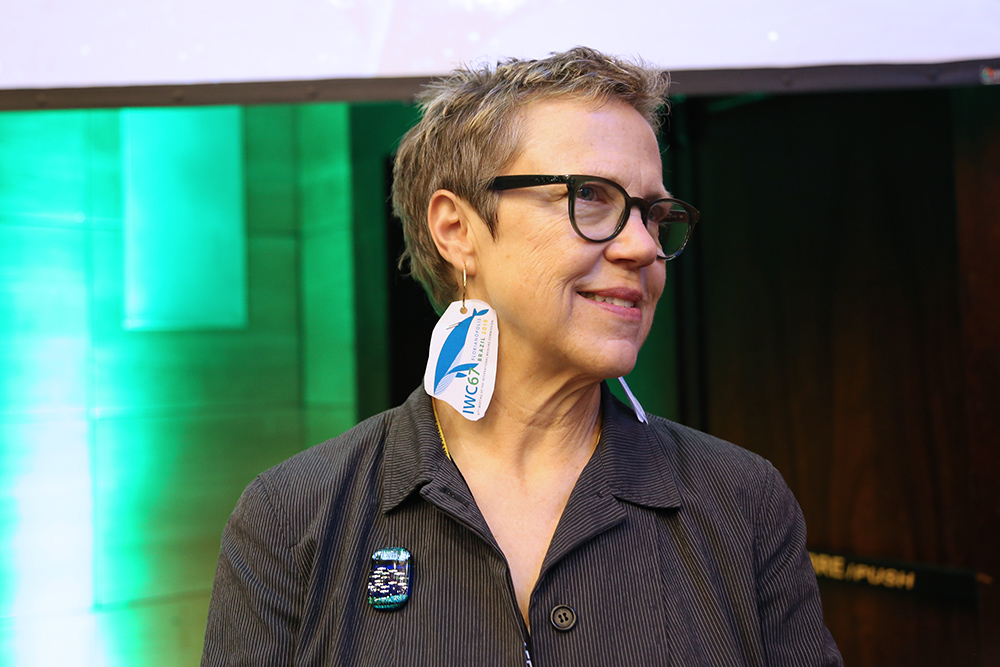
Closing Ceremony
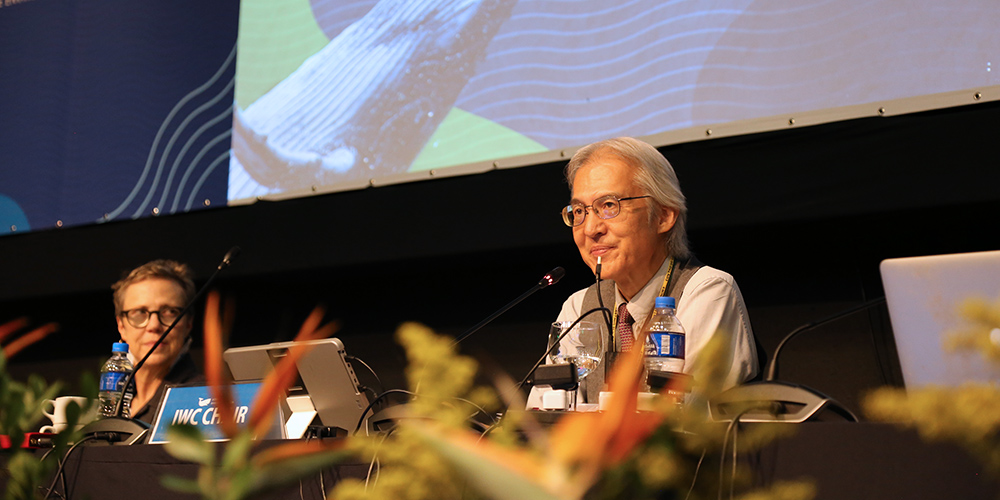
IISD Reporting Services, through its ENB Meeting Coverage, provided daily web coverage and a summary and analysis report from IWC67.
Photos by IISD/ENB | Ángeles Estrada
For photo reprint permissions, please follow instructions at our Attribution Regulations for Meeting Photo Usage Page
+ Visit the web coverage for Friday, 14 September 2018
Highlights for Thursday, 13 September 2018
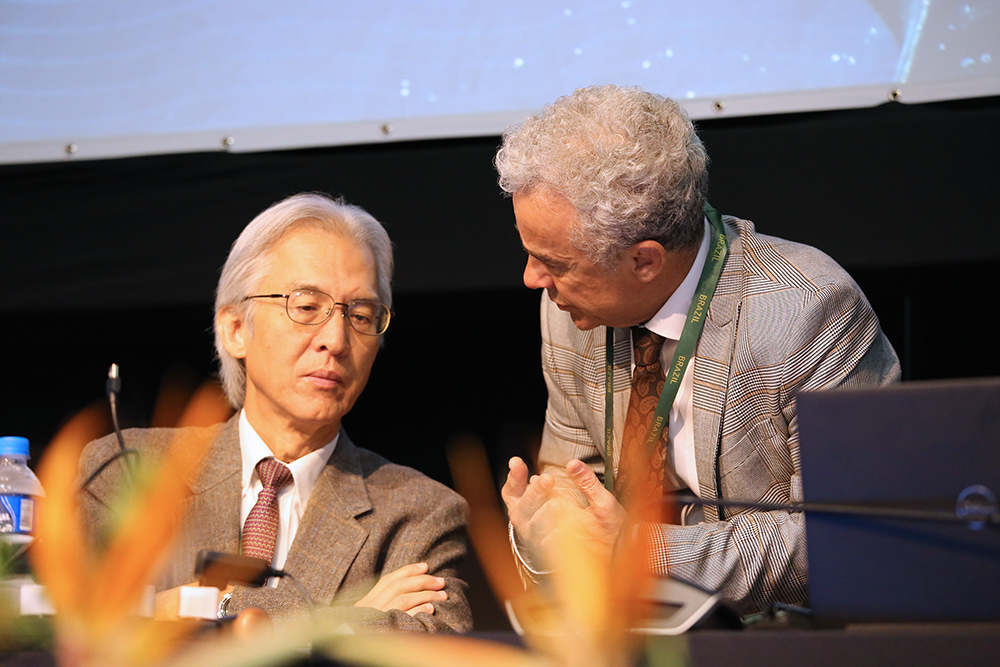
The fourth day of IWC-67 was characterized by interventions and votes that tracked longstanding and divergent positions.
Delegates started the day by adopting the Florianópolis Declaration on the role of the IWC in the Conservation and Management of Whales in the 21st Century. Forty member states supported, 27 opposed, and four abstained. The Declaration reaffirms the importance of maintaining a moratorium on commercial whaling and agrees the use of lethal research methods is unnecessary.
Delegates next considered Japan’s ‘Way Forward’ proposal, which includes a proposed Schedule amendment and a resolution that would, inter alia: allow establishment of the Sustainable Whaling Committee (SWC), reduce the voting requirement to a simple majority for Schedule amendments; and set catch limits for certain whale species. After extensive discussions, Japan requested deferring decision making until Friday to consider the interventions overnight.
IWC-67 delegates also considered reports on whale killing methods and welfare issues.
On Special Permits, the Scientific Committee Chair presented reports on Japan’s whale research programmes, including: New Scientific Whale Research Programme in the Antarctic Ocean (NEWREP-A); Whale Research Programme in the North Pacific (JARPN II); and New Scientific Whale Research Programme in the North Pacific (NEWREP-NP). Discussion topics included:
- potential prerequisites to issuing new permits;
- provision of and access to data; and
- whether the IWC is an appropriate venue for consideration of special permit programmes.
Japan requested inclusion of the discussions in the Chair’s summary to be considered on Friday.
Delegates also considered reports or held discussions on:
- conservation management plans;
- whale watching;
- national reports on cetacean conservation;
- regional research partnerships;
- Revised Management Procedure;
- infraction committee;
- catch by non-member states; and
- cooperation with other organizations.
During an extended early-evening session, delegates considered topics related to finance and administration, including:
- the IWC financial situation, which includes a serious budget deficit;
- intersessional working groups; and
- financial statements and budgets.
Lacking consensus on the core budget 2019-2020 cost reduction measures, Chair Morishita proposed to maintain a zero increase in contributions, while accepting a 30% reduction of the Scientific Committee work.
Two proposed resolutions, on the 2030 Agenda, and on food security, were withdrawn for consideration for this meeting, due to apparent lack of consensus.
Plenary
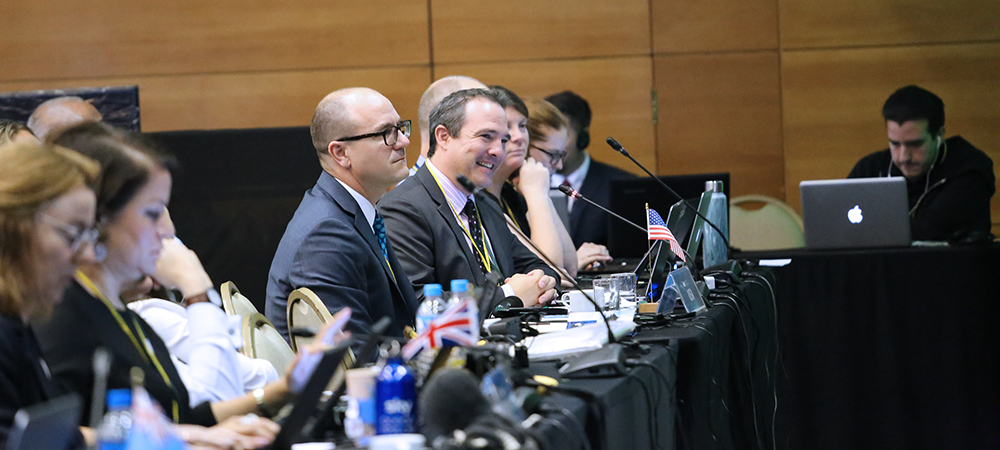
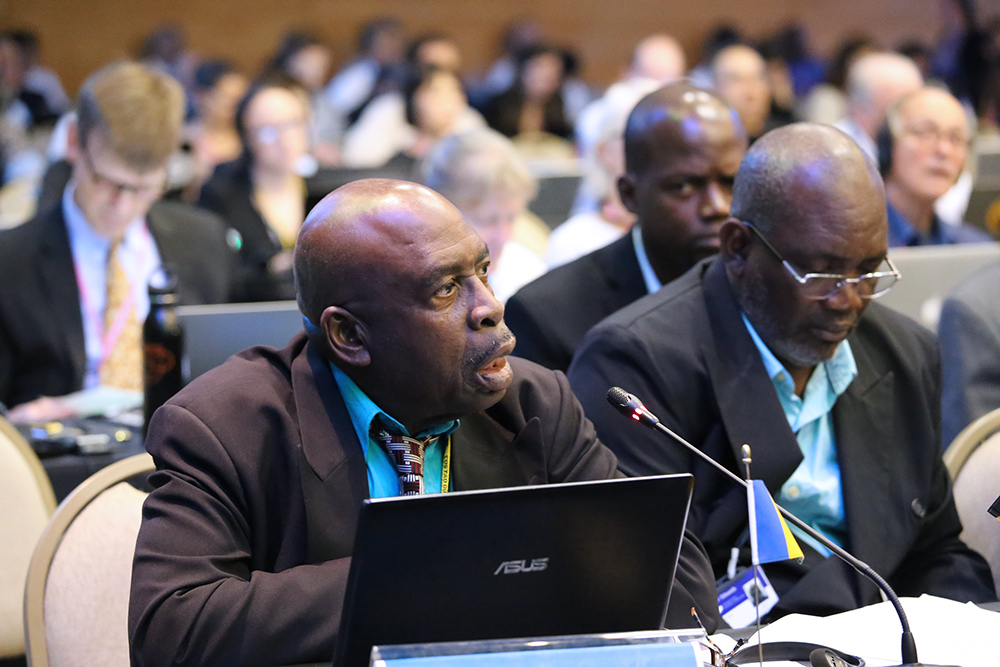
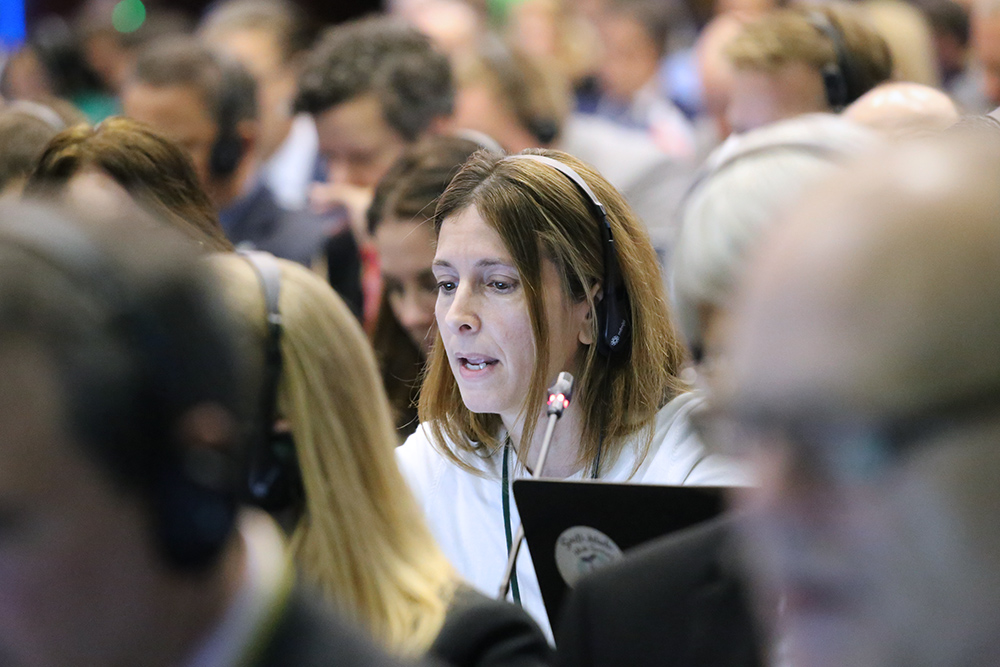
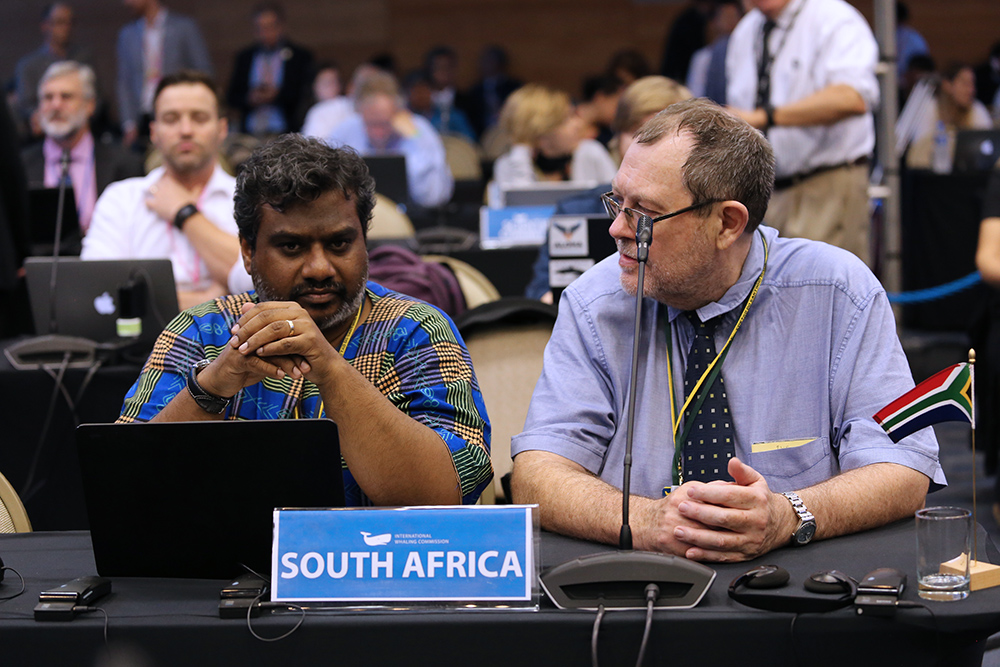
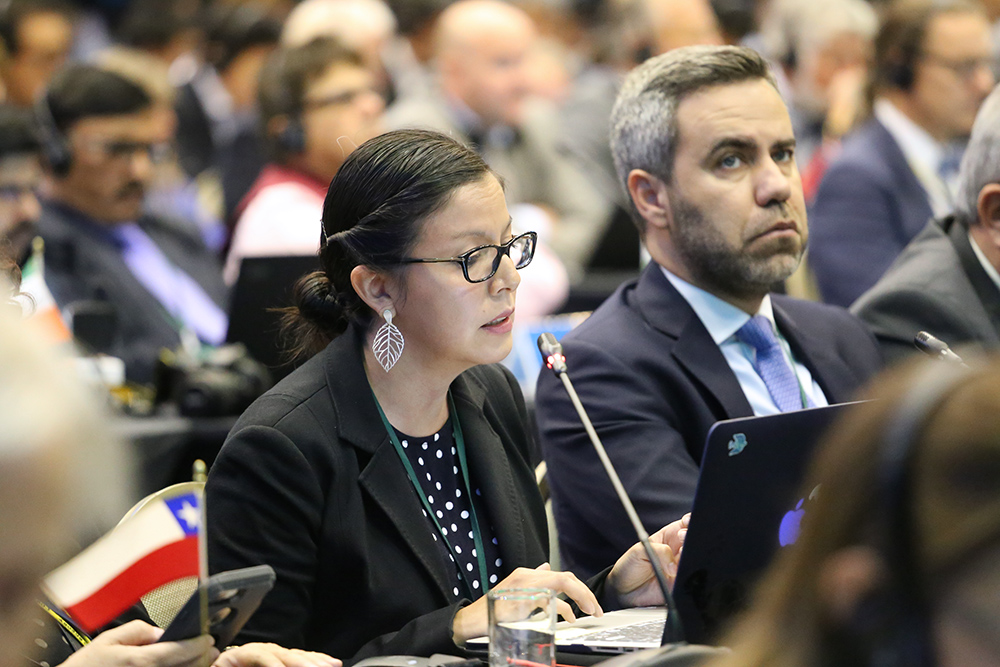
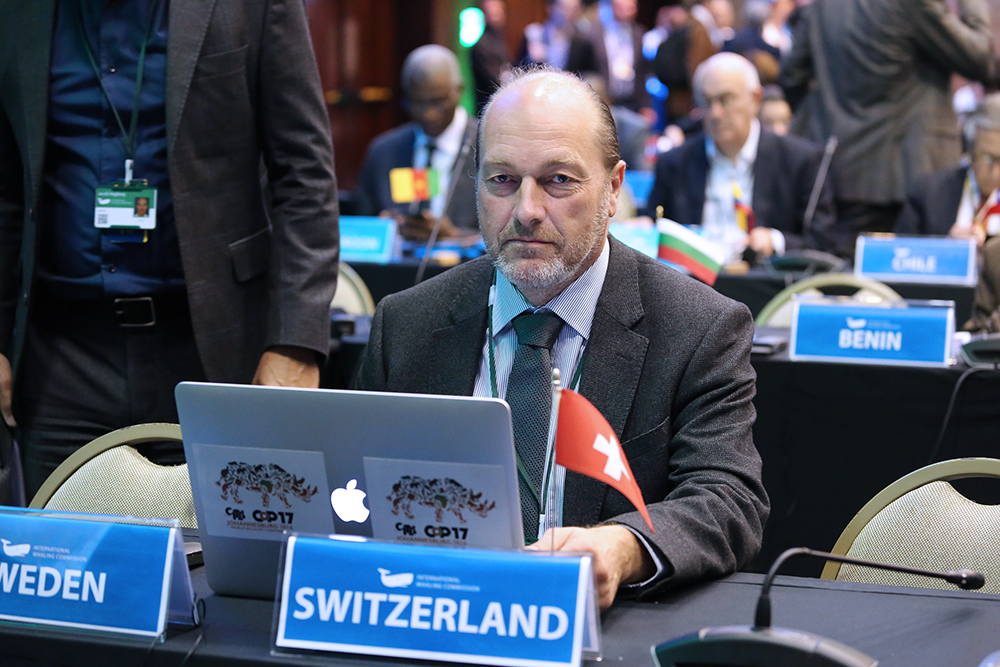
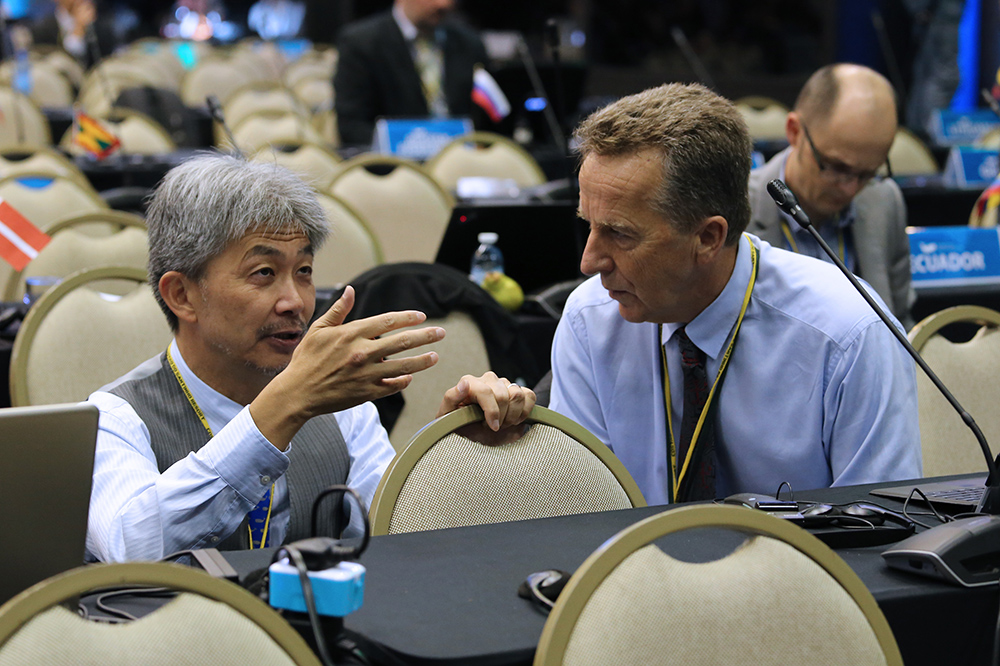
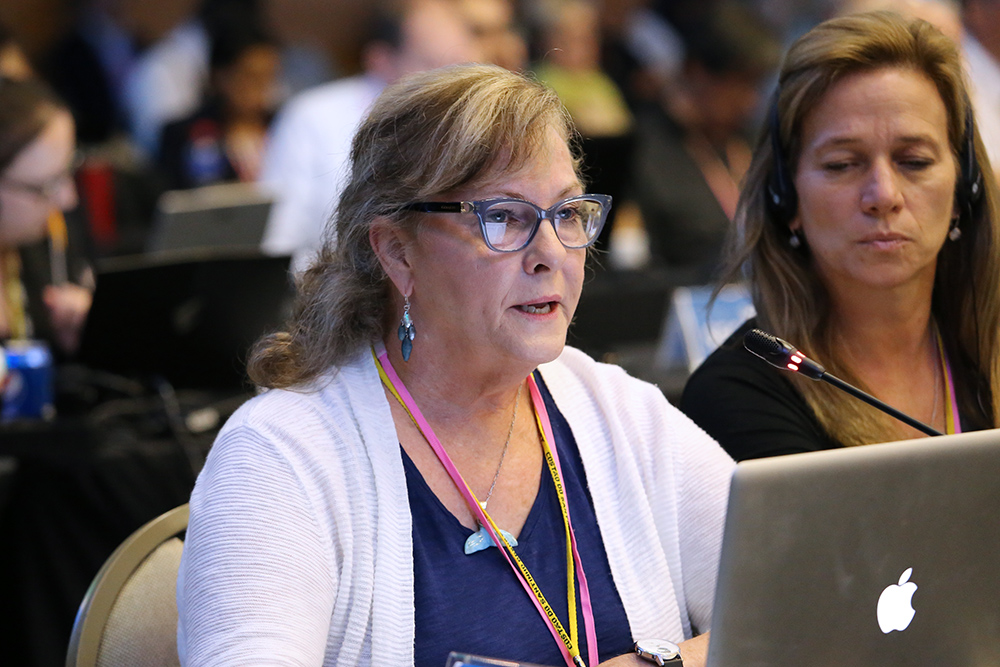
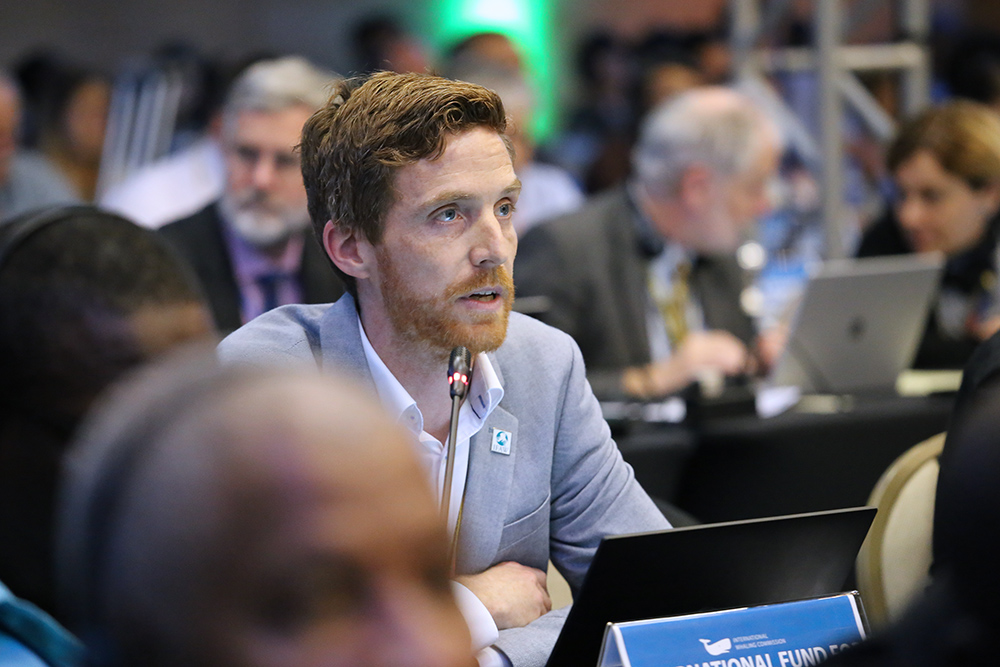
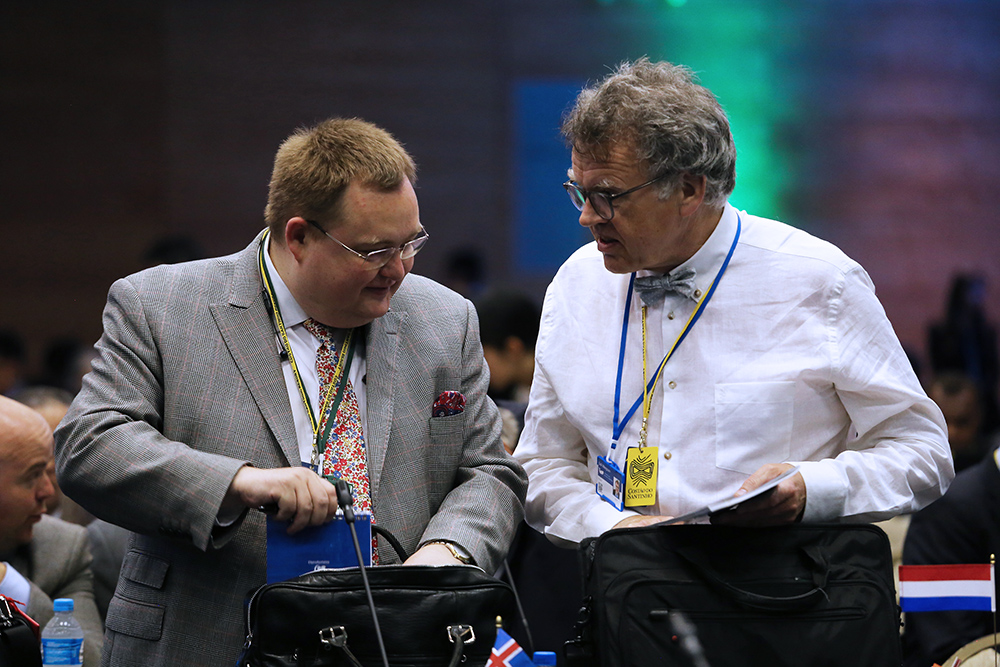
+ Visit the web coverage for Thursday, 13 September 2018
Highlights for Wednesday, 12 September 2018
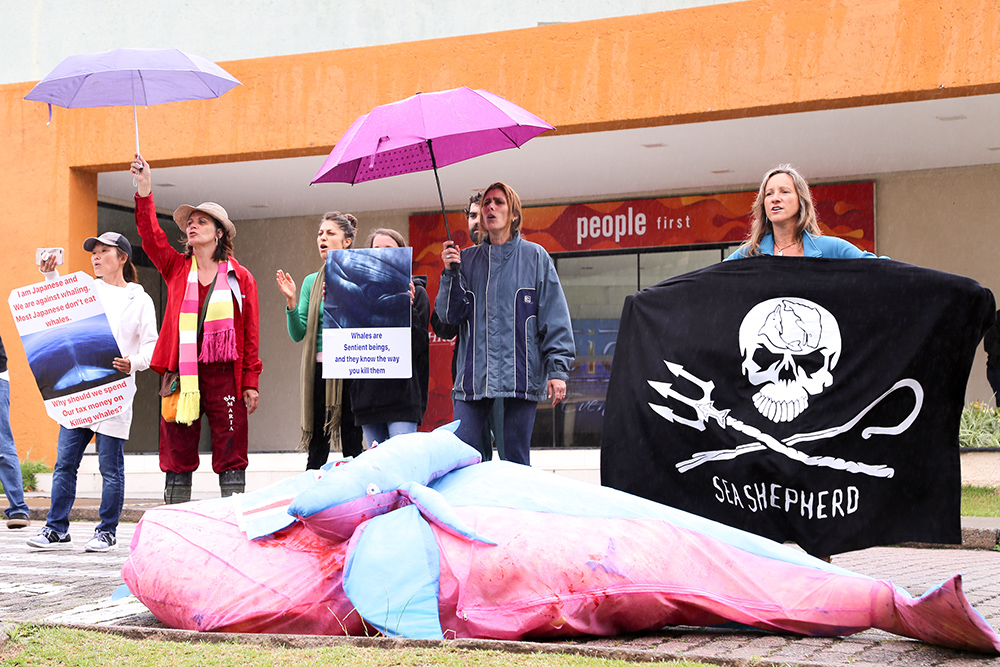
On Wednesday, IWC delegates considered a revised proposed Schedule amendment on aboriginal subsistence whaling (ASW), which included:
- an enhanced review by the Commission of information submitted;
- strengthened safeguards related to a limited automatic renewal process; and
- greater emphasis on improving the welfare outcomes of ASW hunts.
Lacking consensus, the resolution was approved with 58 member states supporting, seven opposing, and five abstaining. Many delegates found moving a statement given by an Alaskan whaler, who said the amendment meant his community could now “provide for our people,” without anxiety.
The IWC also considered and endorsed reports on the status and health of cetaceans, including:
- conservation, management needs, and identification gaps related to whale stocks;
- small cetaceans, including the critical situation of several species;
- cetacean health and disease; and
- stock definition and DNA testing.
Delegates also considered and endorsed reports on cetacean habitat, including on:
- the State of Cetacean Environment Report (SOCER), the Arctic Ocean, and climate change; and
- ecosystem functioning.
Delegates then considered a proposed resolution on advancing the Commission’s work on the role of cetaceans in the ecosystem functioning. Lacking consensus, delegates adopted the proposed resolution, 40 in favor, 23 opposing, with seven abstentions.
On unintended anthropogenic impacts, the IWC considered and endorsed reports on pollution and marine debris. Delegates adopted, by consensus, a proposed resolution on addressing ghost gear and entanglements, after the addition of language clarifying that the resolution should not duplicate work of other organizations.
On underwater anthropogenic noise, delegates also adopted a proposed resolution by consensus, with the addition of similar language regarding no duplication of work.
Delegates also endorsed reports on cetacean bycatch and ship strikes.
During an extended session at the close of the day, delegates were asked to consider, in tandem, the proposed Florianópolis Declaration on the role of the IWC, and Japan’s IWC in the Future joint-package. Delegates heard more than 30 statements on the Florianópolis Declaration and the day ended with a promise from Chair Morishita to expect Thursday to be a long day, given how much remained on the agenda.
Plenary
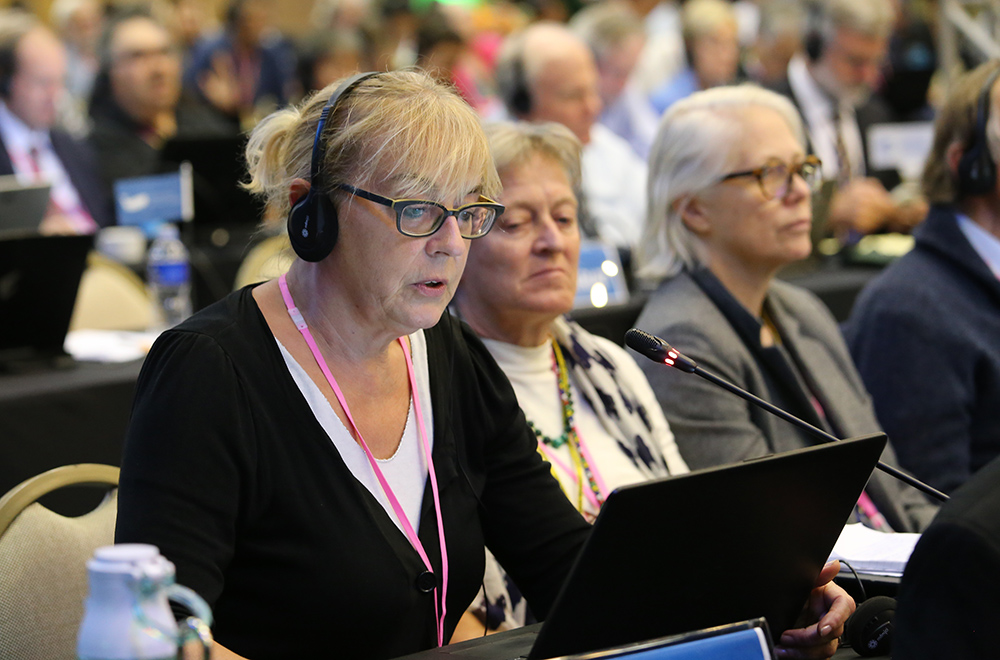
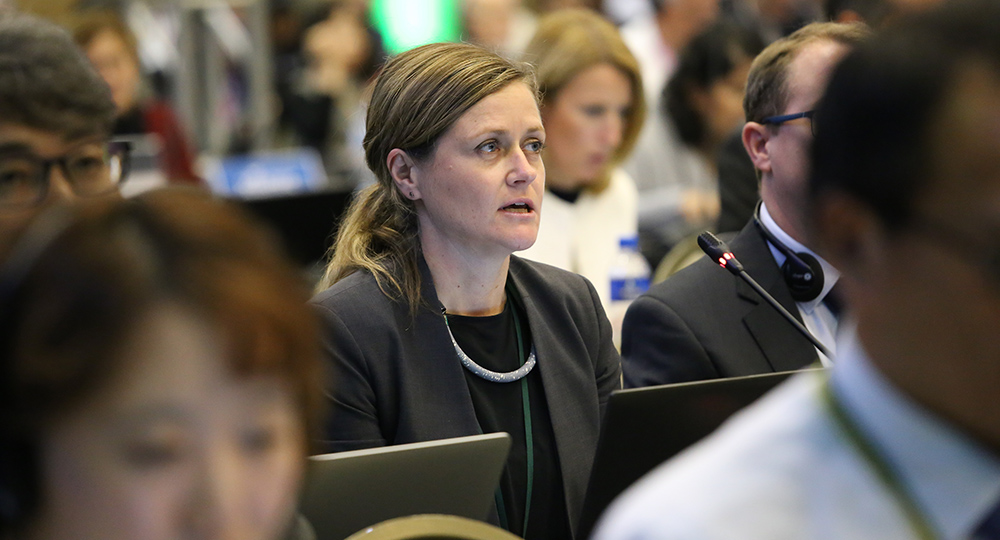
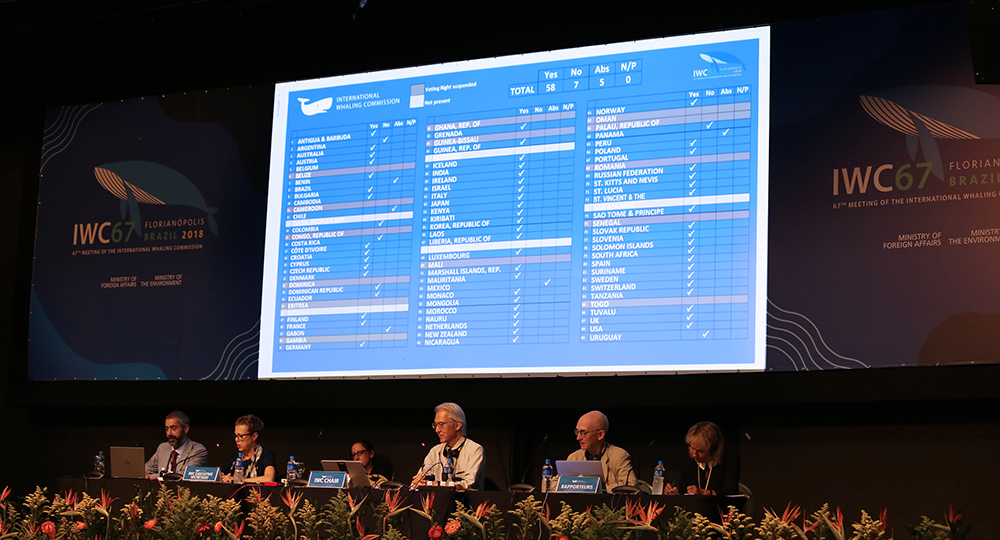
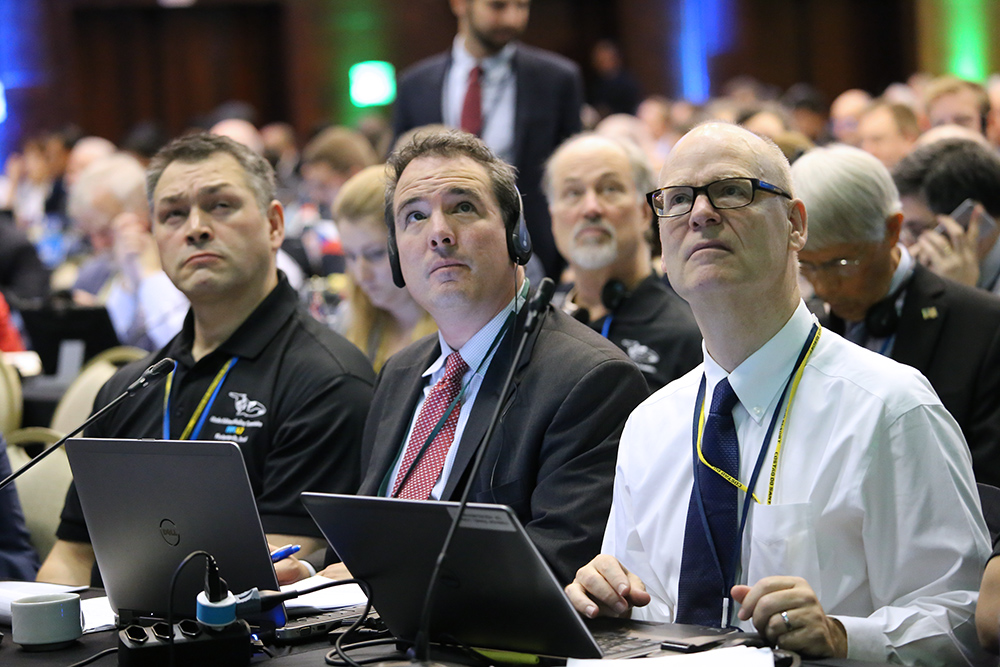
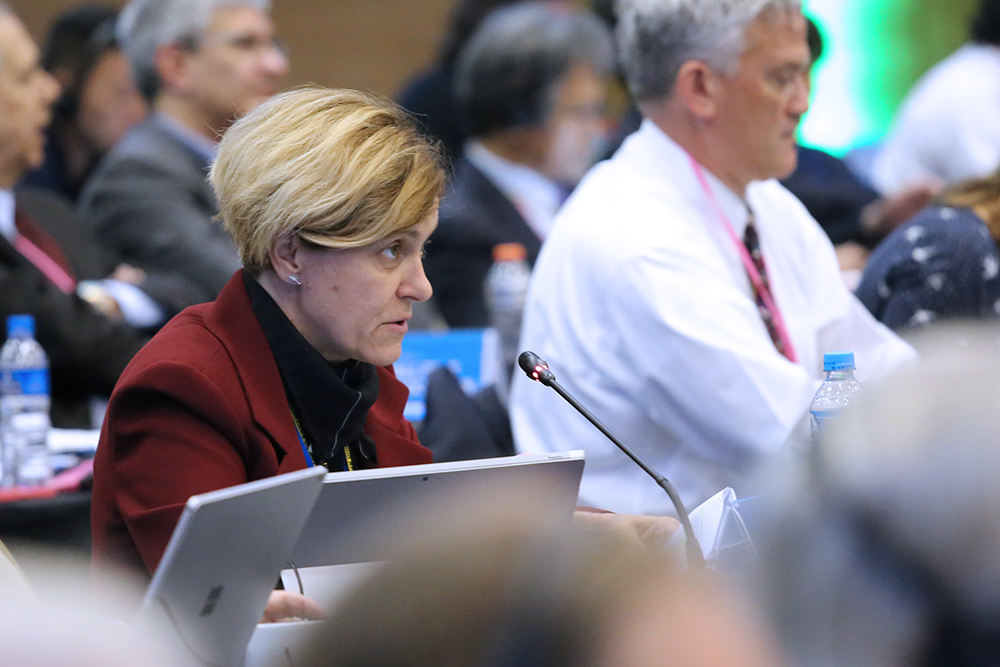
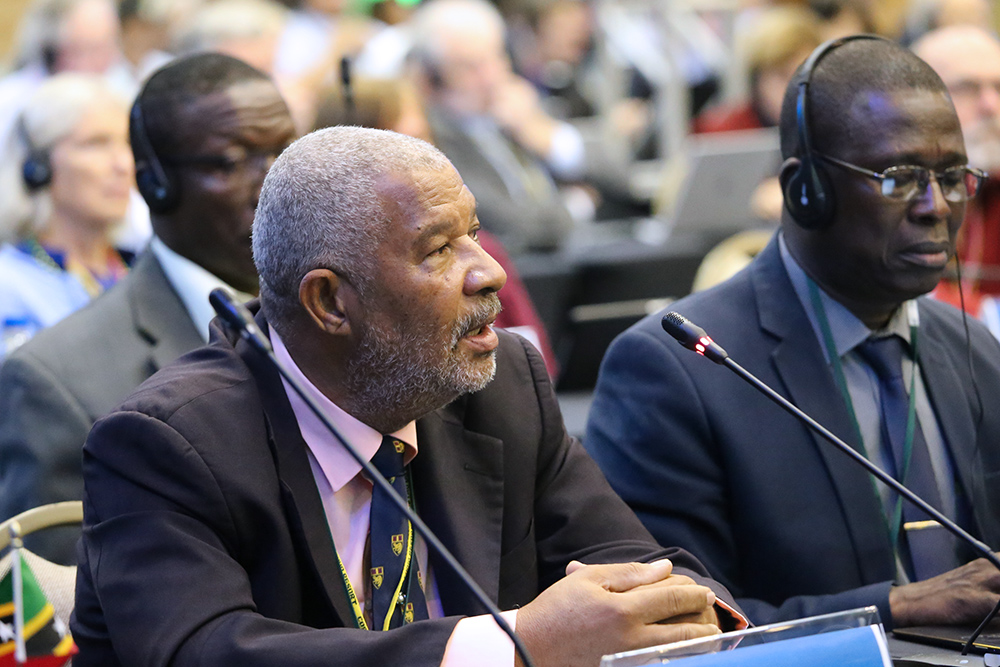
+ Visit the web coverage for Wednesday, 12 September 2018
Highlights for Tuesday, 11 September 2018
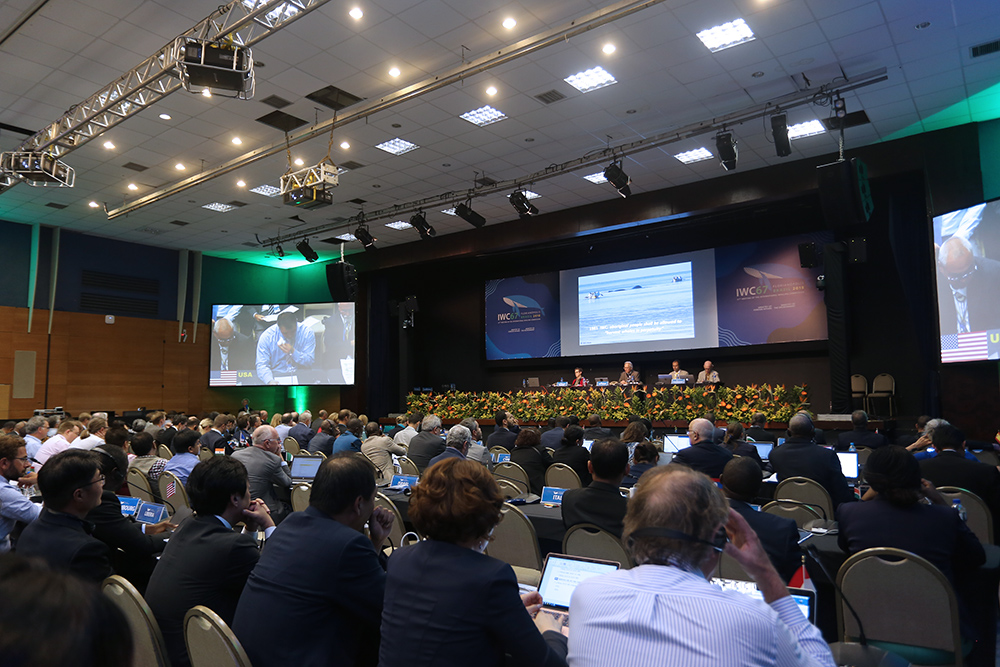
IWC-67 reconvened Tuesday to consider the longstanding effort to establish a South Atlantic Whale Sanctuary. The proposal failed to reach the requisite 75% majority, with 39 members voting in favor, 25 opposing, and three abstentions. Key areas of divergence centered on:
- anticipated benefits from enhanced conservation;
- effectiveness of a sanctuary approach for helping to mitigate anthropogenic threats;
- strength of the scientific rationale; and
- legal issues of the proposed sanctuary under the ICRW.
After the vote, Brazil expressed its respect for the IWC’s democratic process and its resolve to continue working for a South Atlantic Whale Sanctuary.
On Aboriginal Subsistence Whaling (ASW), delegates heard presentations on and endorsed the conclusions and recommendations of reports related to:
- the Ad-hoc ASW Working Group;
- ASW management procedure;
- Aboriginal Whaling Scheme;
- ASW catch limits; and
- status of the voluntary fund for ASW.
Delegates then focused on the proposed Schedule amendment on ASW, submitted by the four ASW IWC member countries, which includes: a one-time seven-year block for setting quotas; carryover provisions to address uncertainty in harvests; and autorenewal of quotas in specific circumstances. Representatives from native whaling communities in the US, the Russian Federation, Denmark, and St. Vincent and the Grenadines presented on the need for the amendment, including:
- traditional dependence on marine resources, especially mammals;
- flexibility needed to allocate whale quotas between seasons and villages;
- commitment to continue following relevant IWC provisions; and
- their right to harvest whales “in perpetuity” so long as stocks remain healthy.
Subsequent interventions by delegates indicated a divergence of views and, at the request of the proposing countries, decision making was deferred.
By day’s end, the IWC-67 had fallen a bit behind on its ambitious, packed schedule, but delegates continued to meet in the halls and small meeting rooms, with a focus on recrafting the proposed Schedule amendment to give effect to a revised long-term ASW approach.
Plenary
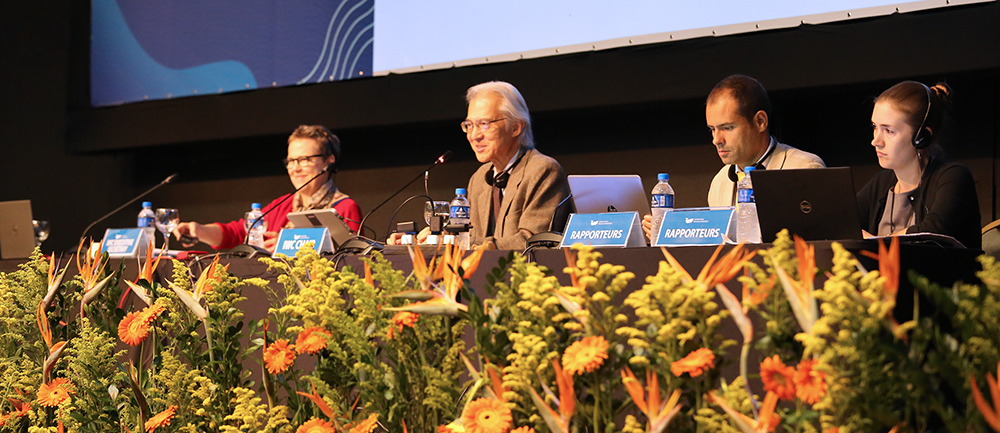
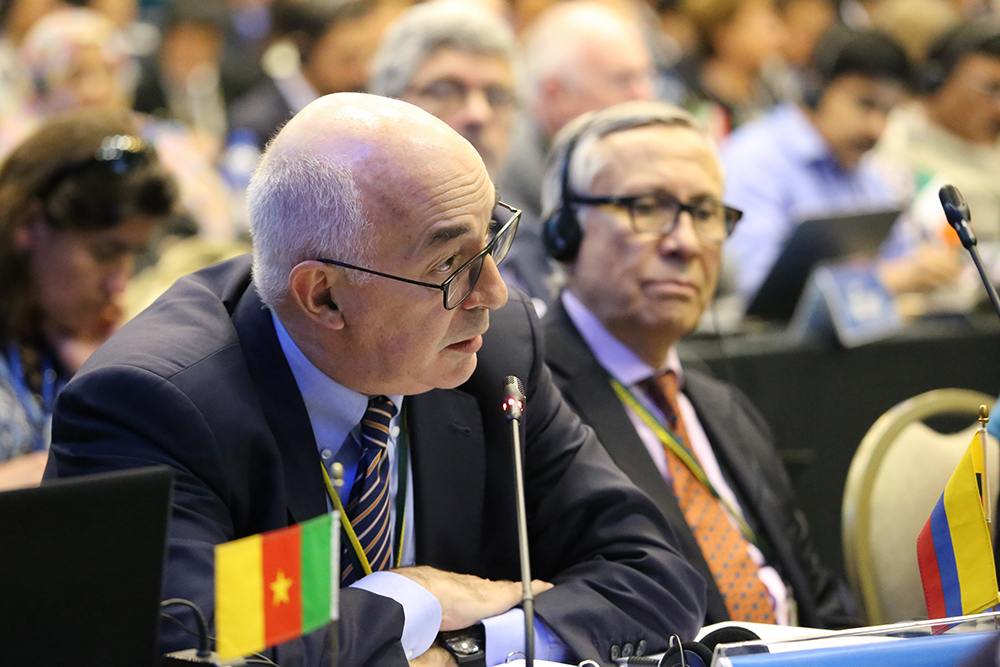
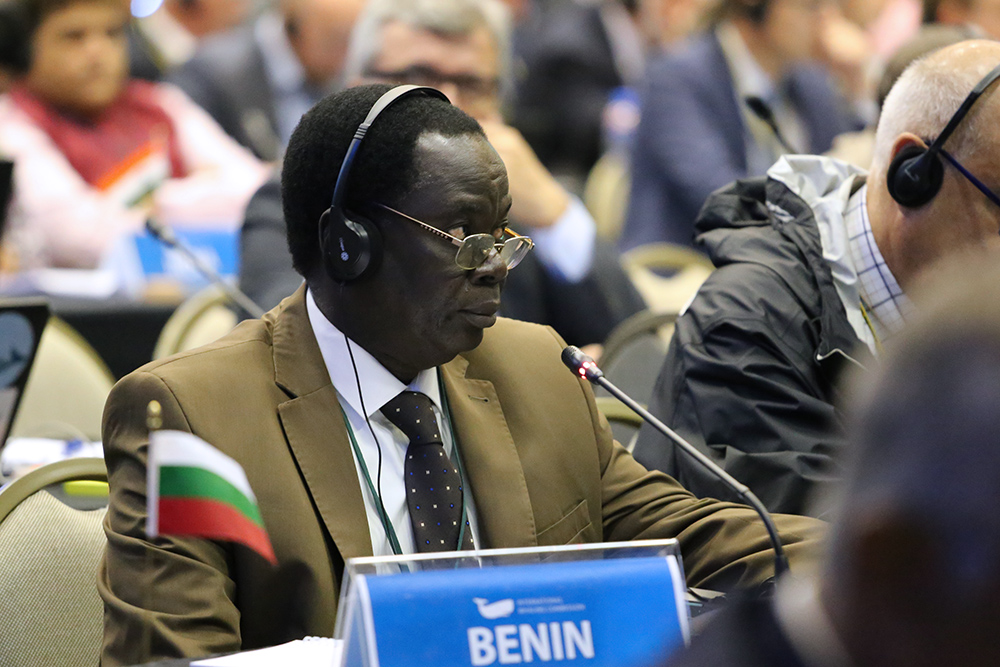
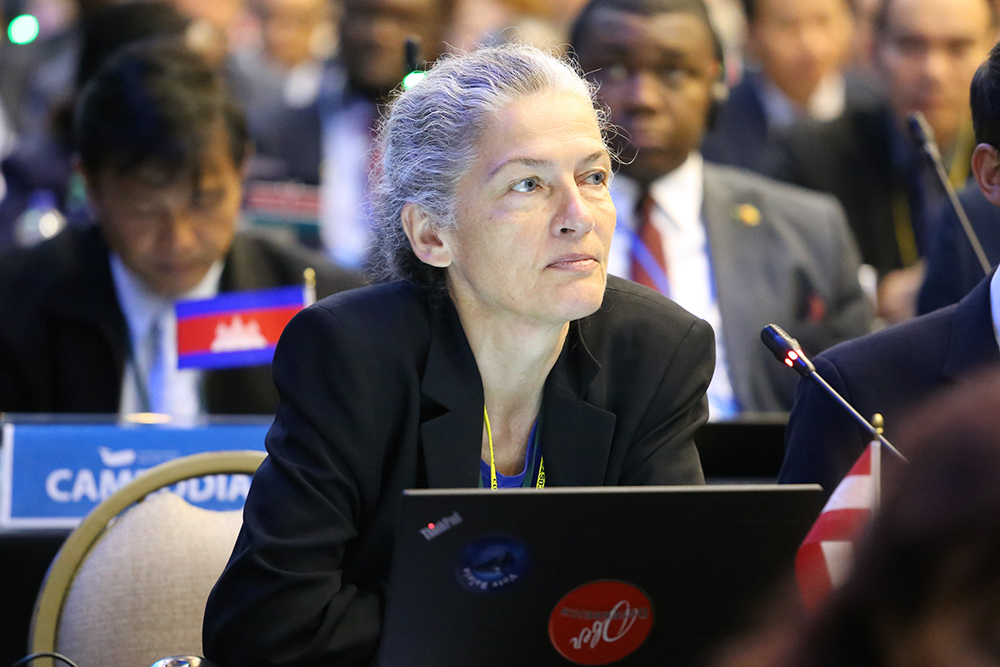
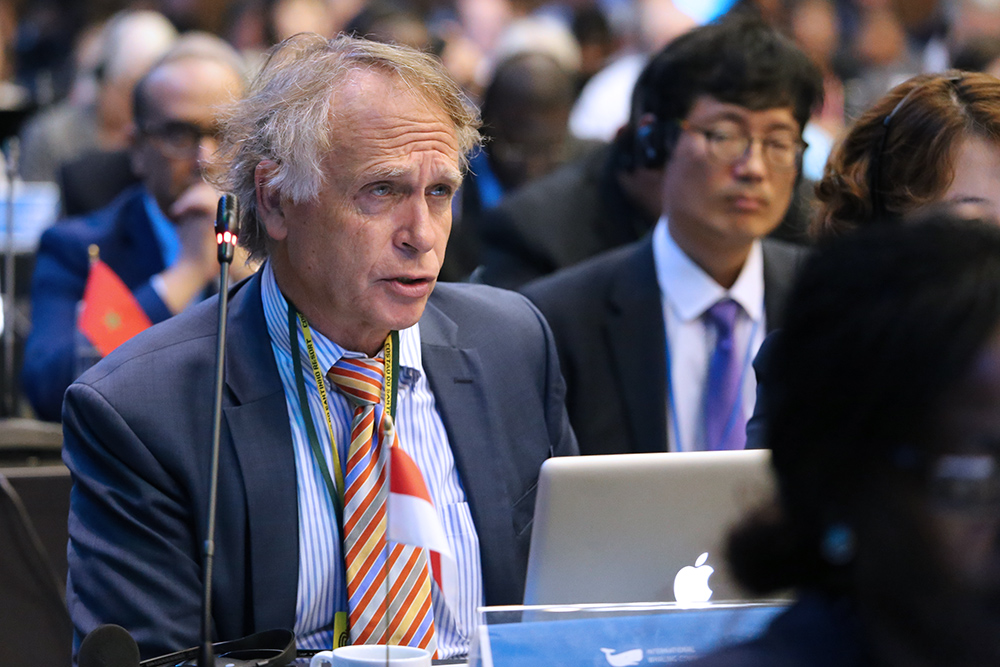
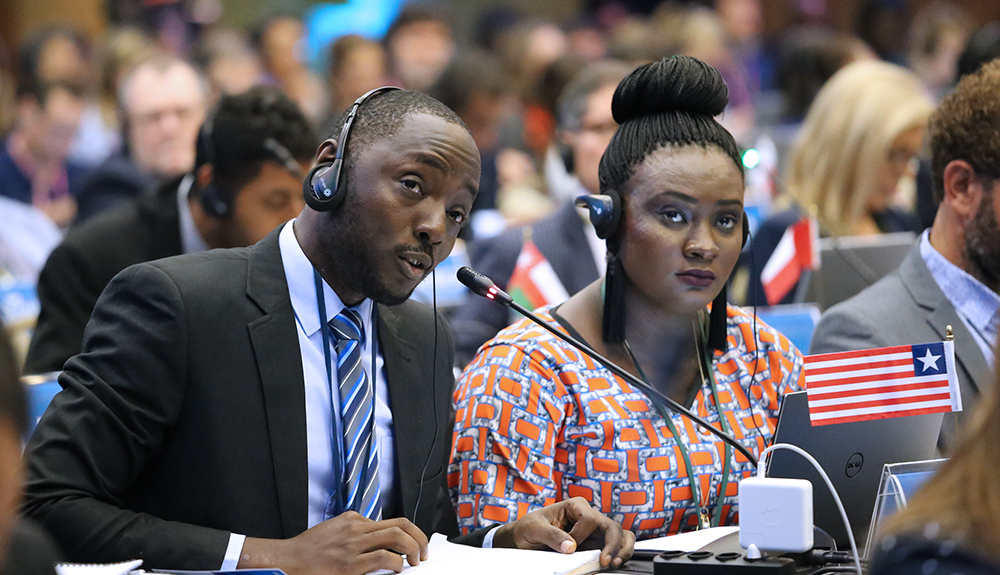
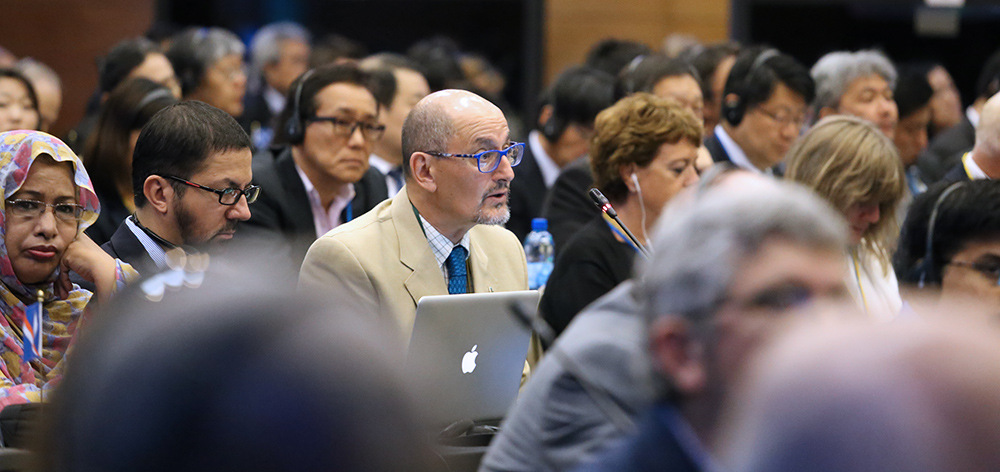
+ Visit the web coverage for Tuesday, 11 September 2018
Highlights for Monday, 10 September 2018
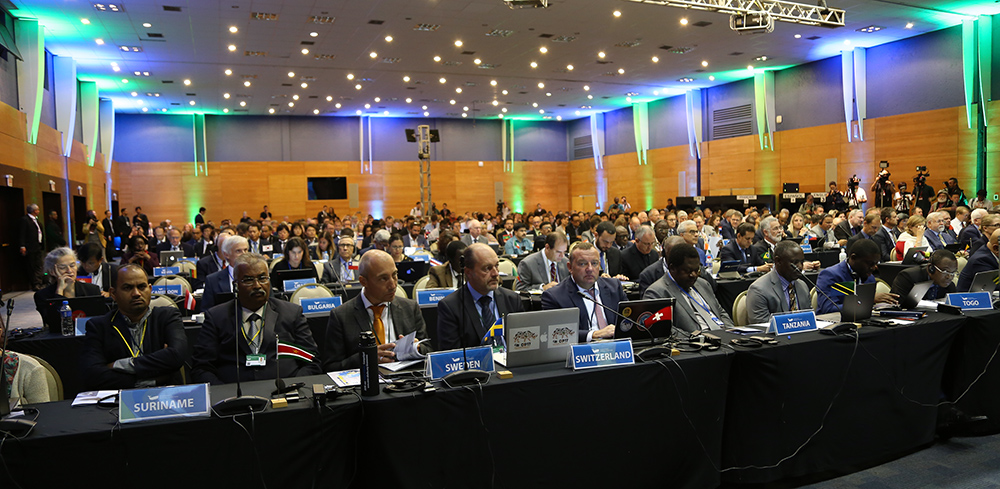
IWC-67 opened Monday in Florianópolis, Brazil, chaired by Joji Morishita (Japan). Participants include representatives from 75 of the 89 IWC contracting parties, one non-member government, four intergovernmental organizations, and 80 non-governmental organizations.
Delegates heard opening remarks from: Edson Duarte, Minister of the Environment, Brazil; Anne Ruston, Assistant Minister for International Development and the Pacific, Australia; Masaaki Taniai, Vice-Minister for Agriculture, Forestry and Fisheries, Japan; Mitsunari Okamoto, Vice-Minister for Foreign Affairs, Japan; and from new IWC members from São Tomé and Príncipe, and Liberia. IWC Executive Secretary Rebecca Lent then reported on the status of credentials and voting rights of different parties.
Delegates heard presentations from the Scientific Committee and the Conservation Committee on work since IWC-66 held in 2016.
They also heard a presentation on an independent review of the IWC and then adopted a resolution to develop an implementation plan on institutional and governance reform for consideration by IWC-67 in 2020.
After overview presentations on Schedule amendments, delegates deferred further action, pending discussion in informal groups, on:
- aboriginal subsistence whaling;
- South Atlantic Whale Sanctuary; and
- setting catch limits for certain whale species.
After presentations on draft resolutions, delegates also deferred further review pending informal discussion. The draft resolutions were on:
- anthropogenic noise;
- food security;
- the way forward for the IWC;
- ghost gear entanglement among cetaceans;
- Agenda 2030;
- the Florianópolis Declaration; and
- advancing work on the role of cetaceans in the ecosystem functioning.
By the end of the first day, the character of IWC-67 was taking shape, including:
- a steady workflow through the agenda items; and
- the significance of proposals submitted by Japan, seeking introduction of sustainable use whaling, and by Brazil: defining the IWC’s forward-looking role as focused on 21st century threats to conservation of whale populations.
In the evening, participants attended a welcome reception hosted by the Ministry of the Environment, Government of Brazil.
Opening Ceremony
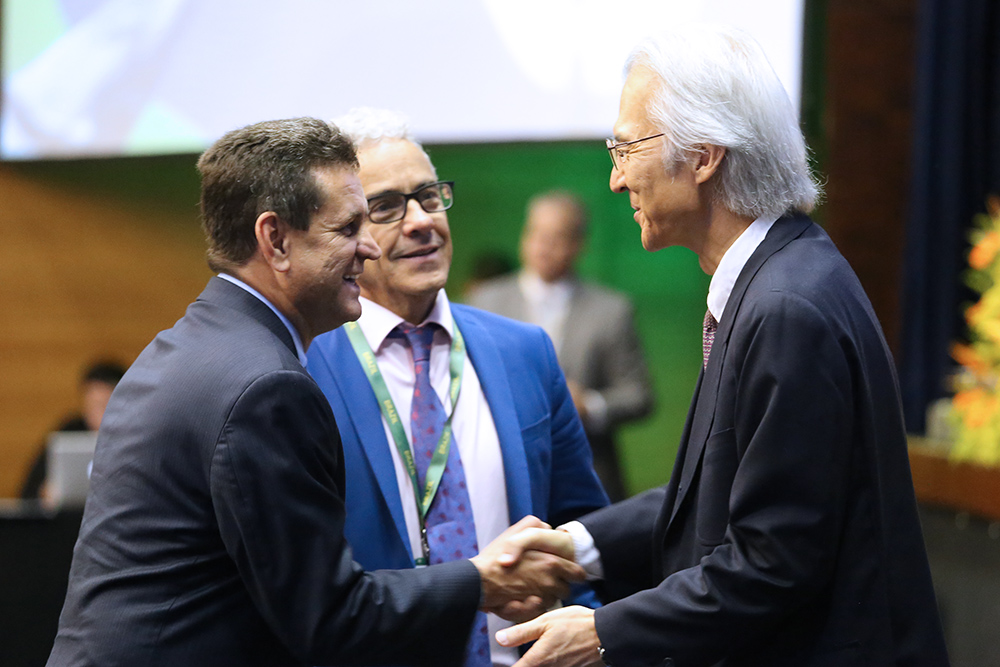
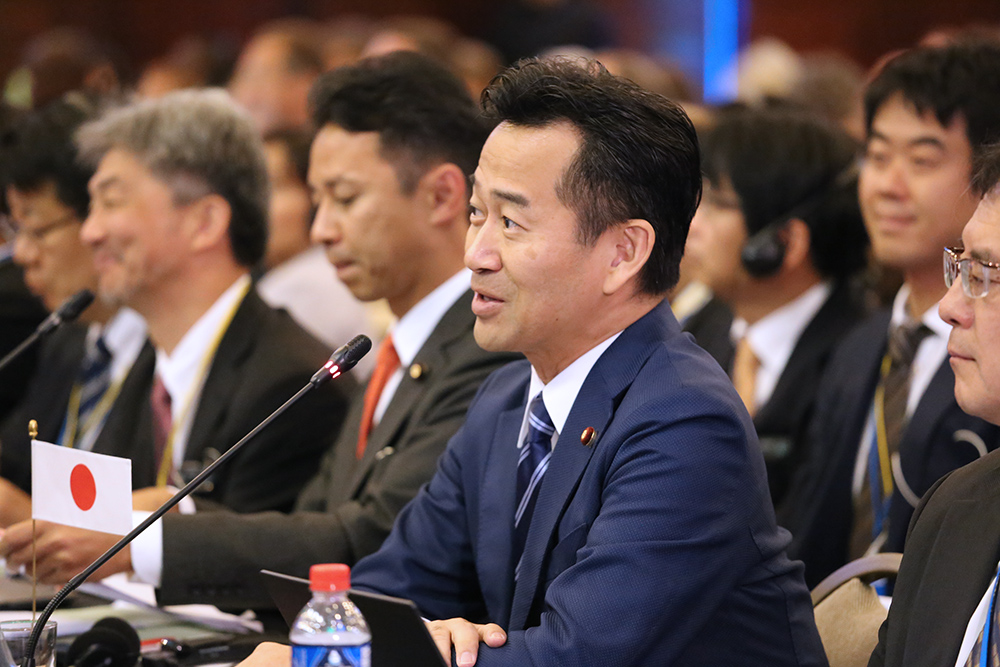
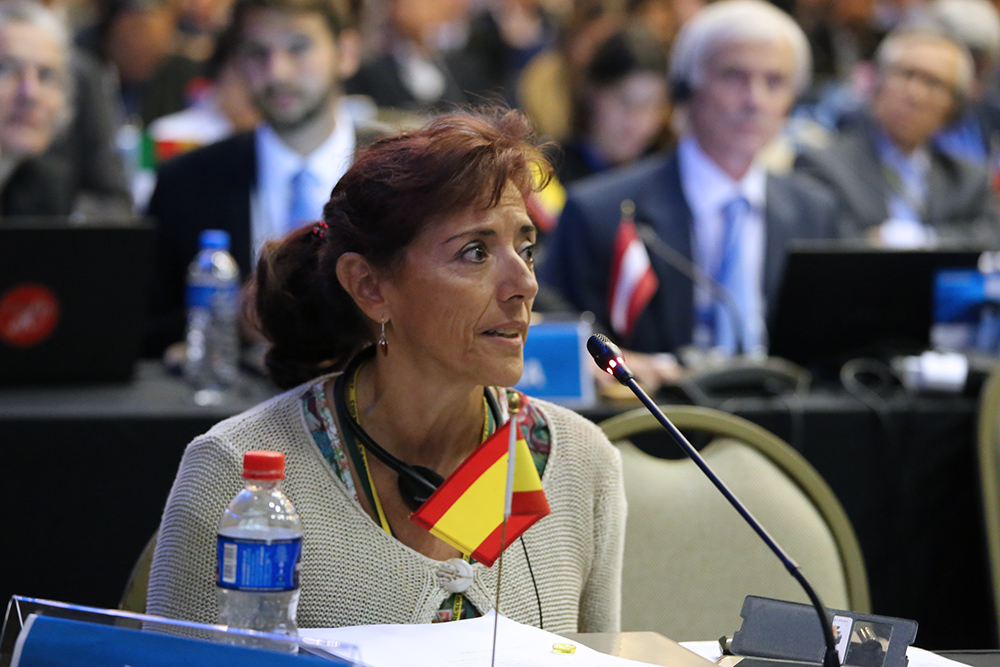
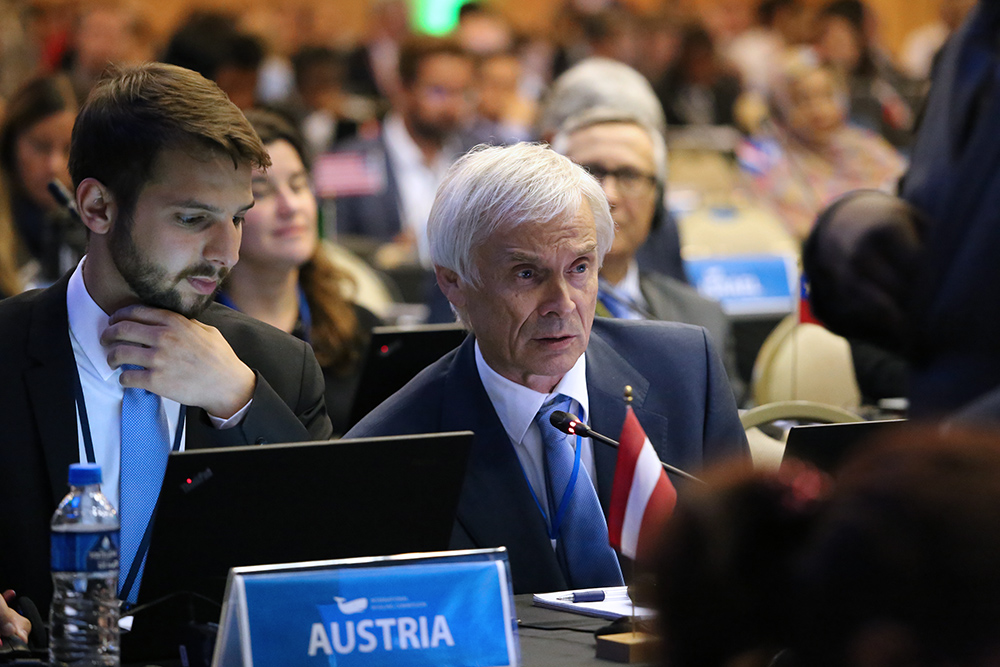
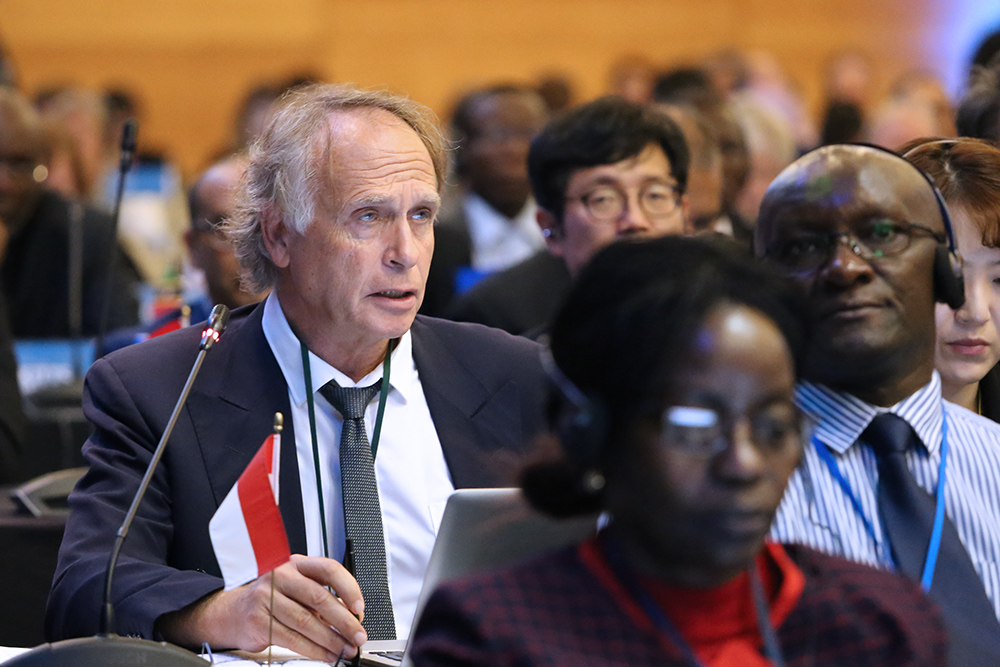
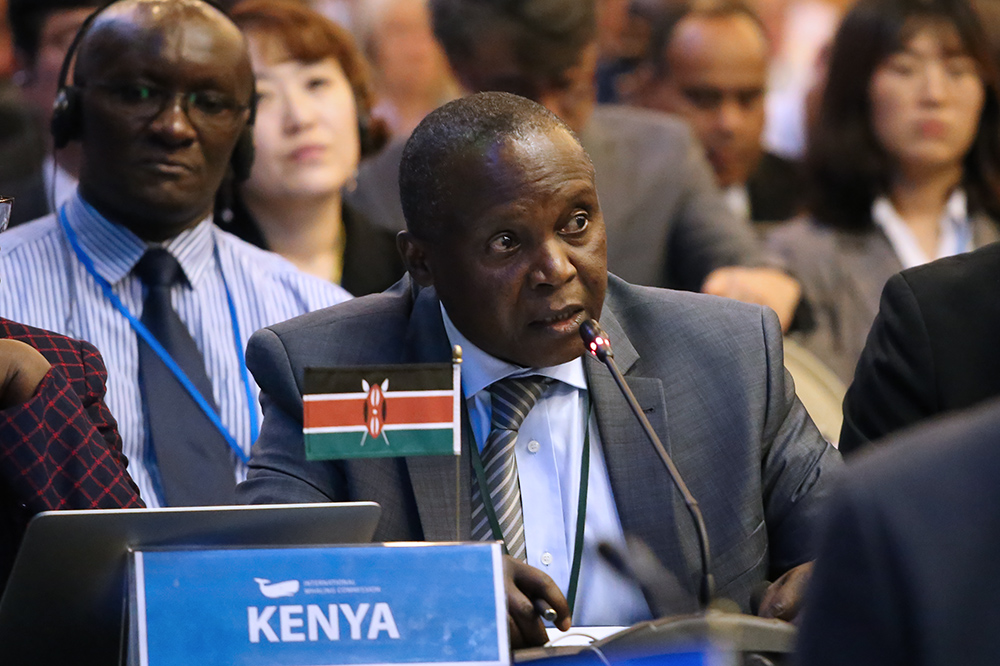
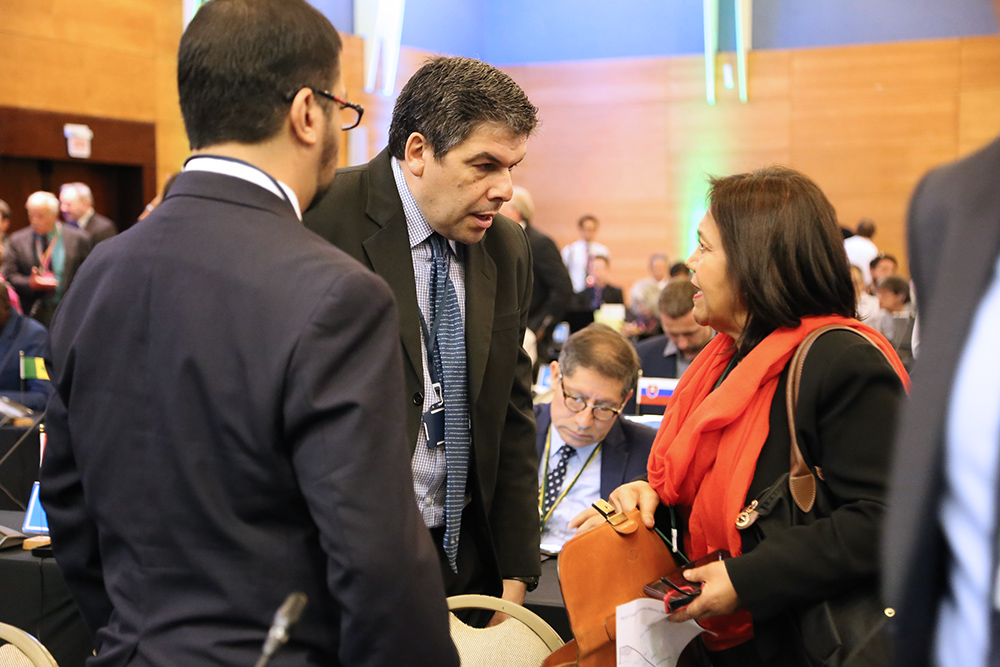
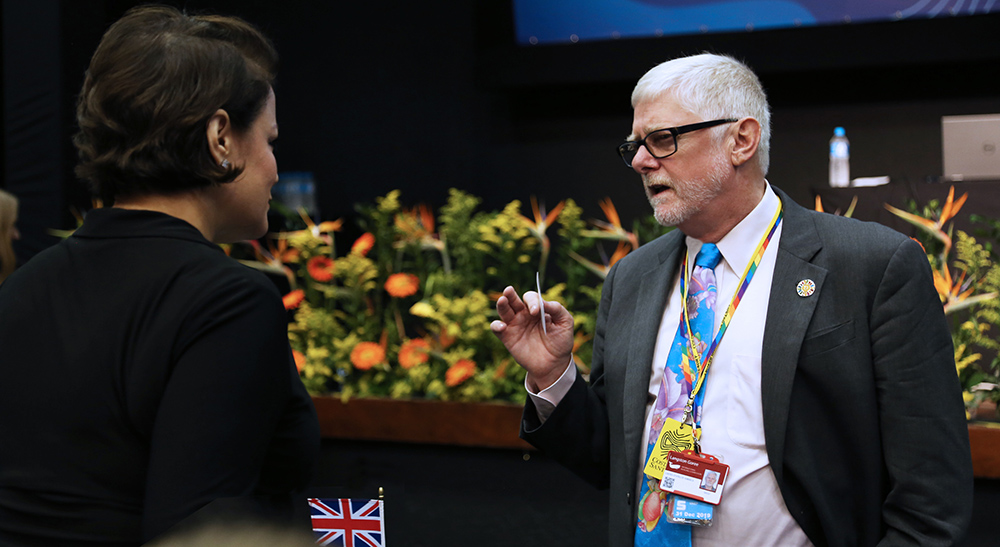
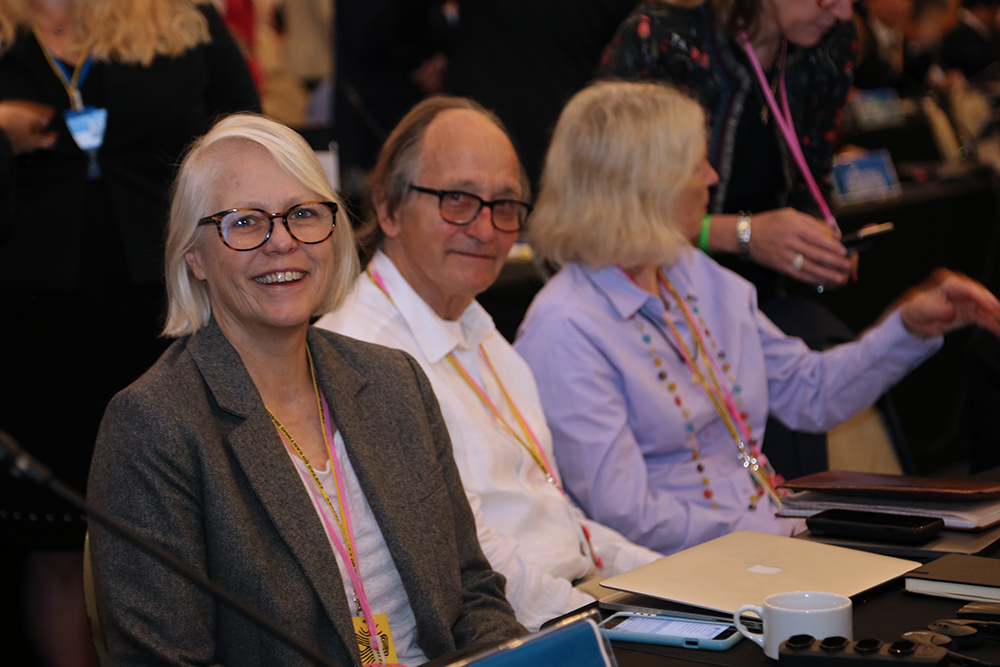
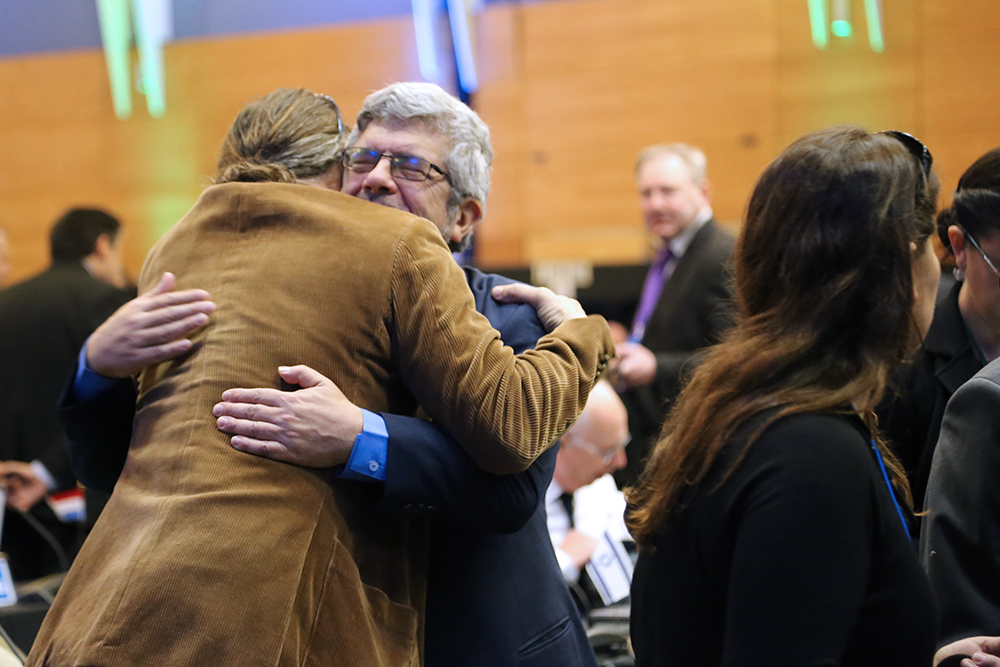
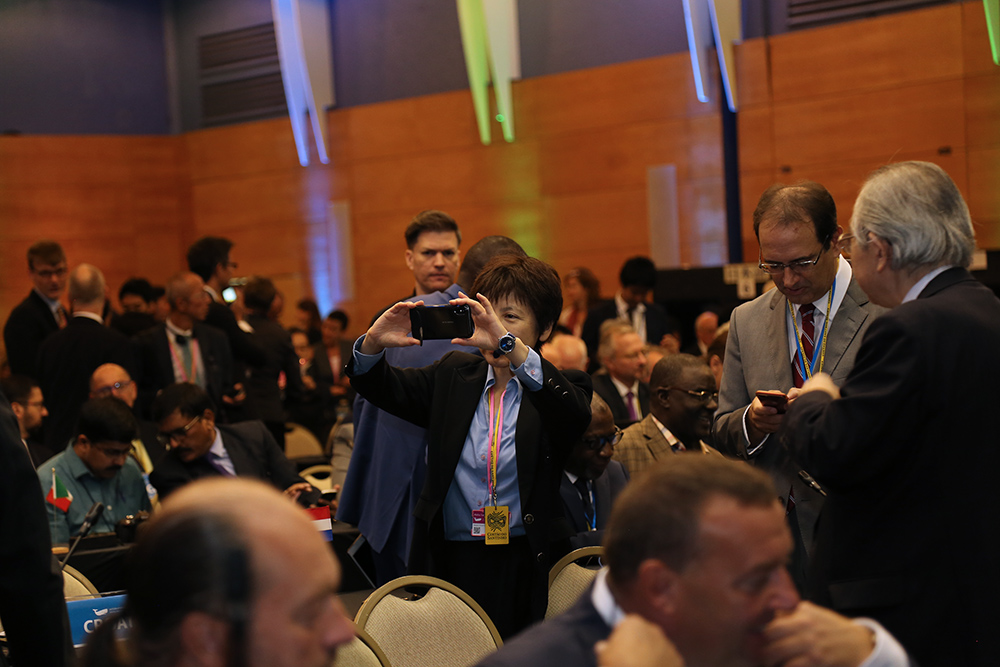
+ Visit the web coverage for Monday, 10 September 2018
DOWNLOAD ENB REPORT
IWC67 Resources
IISD ENB/ENB+ Meeting Coverage
- 19th Meeting of the UN Open-ended Informal Consultative Process on Oceans and the Law of the Sea, 18-22 June 2018, UN Headquarters, New York
- 2nd Meeting of the Sustainable Ocean Initiative (SOI) Global Dialogue with Regional Seas Organizations and Regional Fishery Bodies on Accelerating Progress Towards the Aichi Biodiversity Targets and Sustainable Development Goals, 10-13 April 2018, Seoul, Republic of Korea
- 12th Session of the Conference of the Parties to the Convention on the Conservation of Migratory Species of Wild Animals (CMS COP12), 23-28 October 2017, Manila, Philippines
- 4th International Marine Protected Areas Congress (IMPAC4), 5-9 September 2017, La Serena – Coquimbo and Valparaíso, Chile
- IWC66, 24-28 October 2016, Portorož, Slovenia
IISD Resources
- OCEANS-L - A Mailing List for News and Announcements on Oceans Policy Issues
- BIODIVERSITY-L - A Mailing List for News on Biodiversity and Wildlife Policy
- SDG - A Mailing List for News on Sustainable Development Policy
- SDG Update Newsletter - A compilation of news, commentary and upcoming events published on the SDG Knowledge Hub
- SDG Knowledge Hub - An Online Resource Center for News and Commentary Regarding the Implementation of the United Nations’ 2030 Agenda for Sustainable Development, including all 17 Sustainable Development Goals (SDGs)
- Linkages Update - International Environment and Sustainable Development News